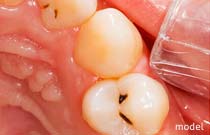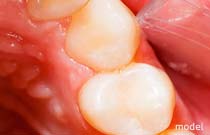Visit Our Office 77 Rolling Oaks Dr., Thousand Oaks, CA 91361(805) 379-5262
How Tooth Grinding Affects You
Bruxism, or excessive teeth grinding, is a common dental health issue often associated with stress, anxiety, stomach problems or misalignments.
 Bruxism often occurs at night and is characterized by tooth grinding, clenching, or biting. Sometimes people are unaware of their habit unless a partner notices and mentions it. Our dentist will notice signs of tooth grinding at your next checkup.
Bruxism often occurs at night and is characterized by tooth grinding, clenching, or biting. Sometimes people are unaware of their habit unless a partner notices and mentions it. Our dentist will notice signs of tooth grinding at your next checkup.
Problems Associated with Excessive Teeth Grinding
Teeth grinding creates a number of problems. Some of the earliest problems include chipped, or excessively worn teeth. In addition, restorations may fracture, break, or wear out long before the average lifespan. Gums get inflamed, and teeth are prone to infections.
Because the pressure exerted on the teeth can be significant, bruxism sufferers can develop symptoms of TMJ disorders, including jaw pain and headaches. Over time, teeth can loosen and are more prone to infection or tooth loss.
Treatment
Treatment helps alleviate the symptoms and reduce risks to your dental health. Dr. Shamoiel will evaluate your teeth and determine the most appropriate treatment plan.
A night guard helps alleviate the stress of grinding and clenching. We customize these guards for a comfortable fit and best results.
Some patients might need cognitive behavioral therapy, make lifestyle changes, or take medication to address underlying conditions.
Contact our office today to find out more or to schedule an appointment with Dr. Sharon Shamoiel, our Thousand Oaks dentist.



